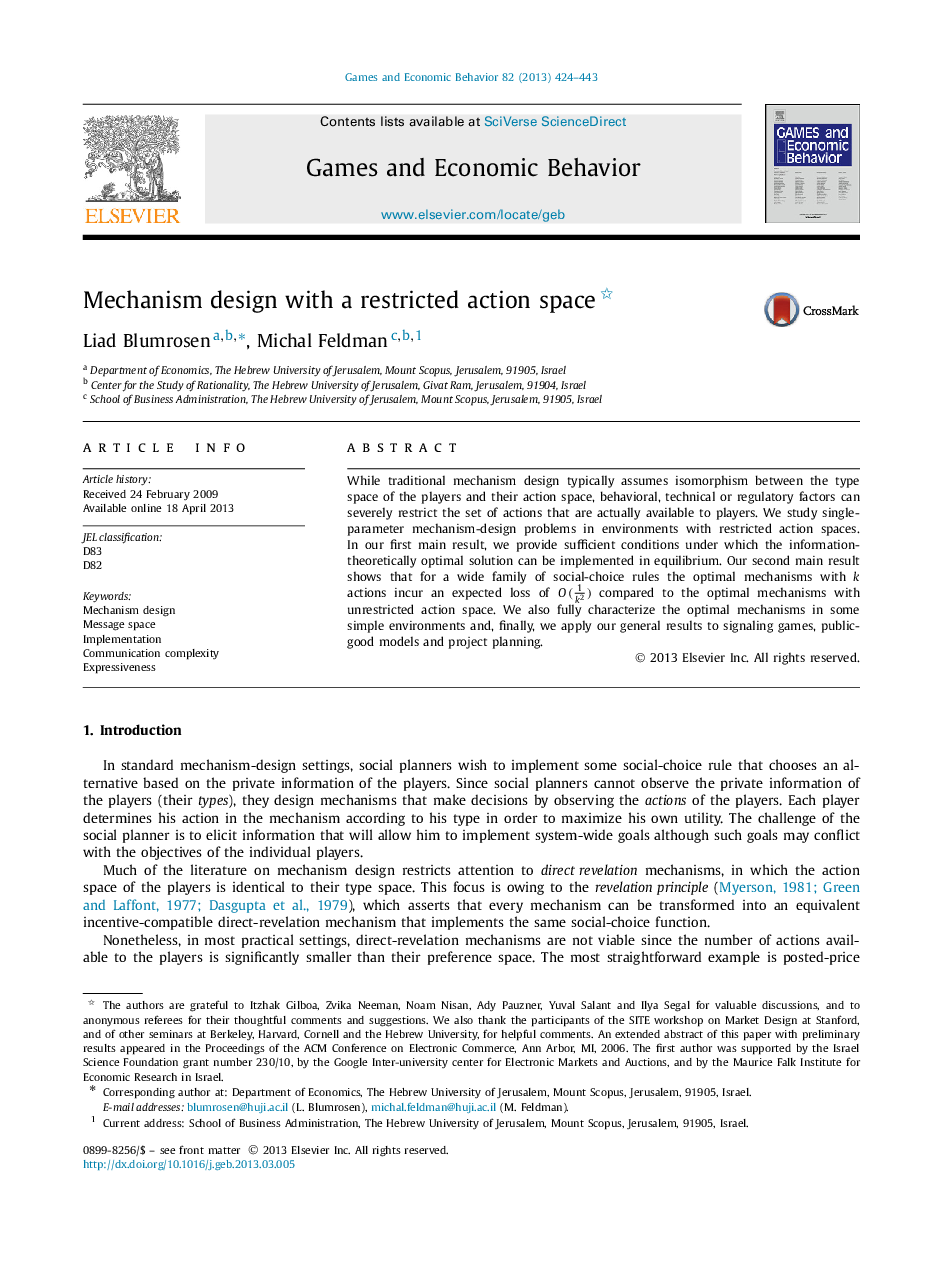| Article ID | Journal | Published Year | Pages | File Type |
|---|---|---|---|---|
| 5071779 | Games and Economic Behavior | 2013 | 20 Pages |
â¢We study general mechanism-design settings with a limited action space.â¢When can the information-theoretic optimal rule be implemented?â¢We characterize optimal mechanisms for various social goals.â¢We show that the social loss decreases quadratically with the number of actions.
While traditional mechanism design typically assumes isomorphism between the type space of the players and their action space, behavioral, technical or regulatory factors can severely restrict the set of actions that are actually available to players. We study single-parameter mechanism-design problems in environments with restricted action spaces. In our first main result, we provide sufficient conditions under which the information-theoretically optimal solution can be implemented in equilibrium. Our second main result shows that for a wide family of social-choice rules the optimal mechanisms with k actions incur an expected loss of O(1k2) compared to the optimal mechanisms with unrestricted action space. We also fully characterize the optimal mechanisms in some simple environments and, finally, we apply our general results to signaling games, public-good models and project planning.
